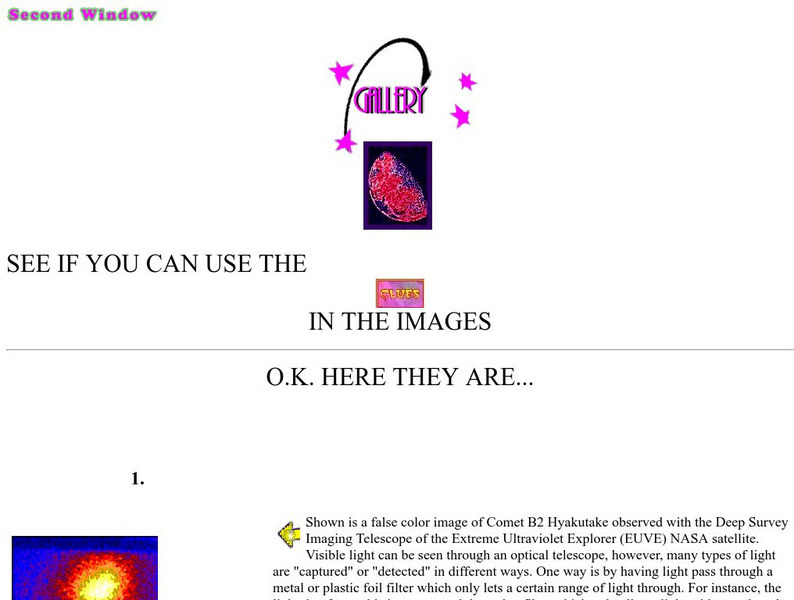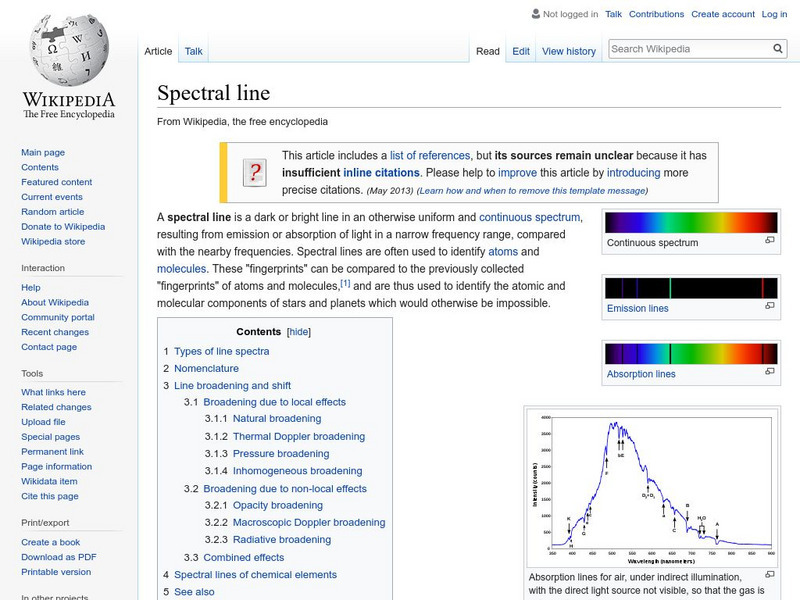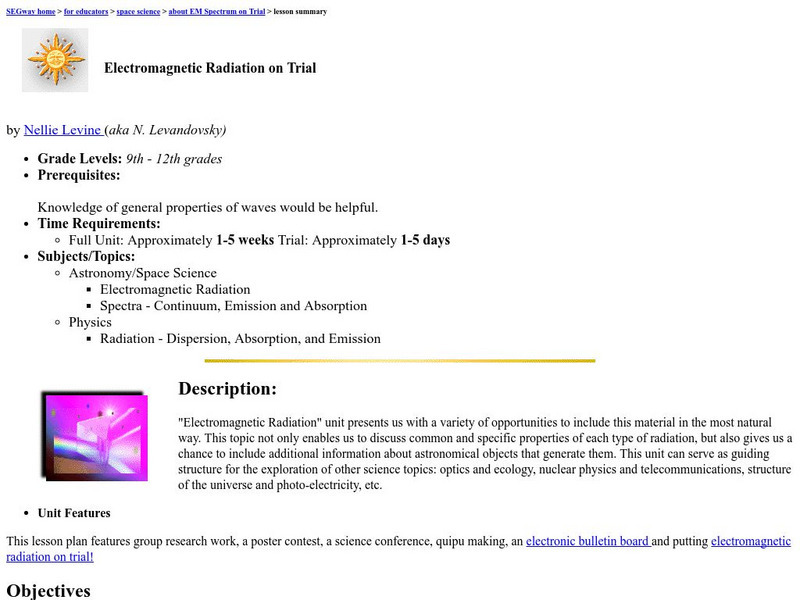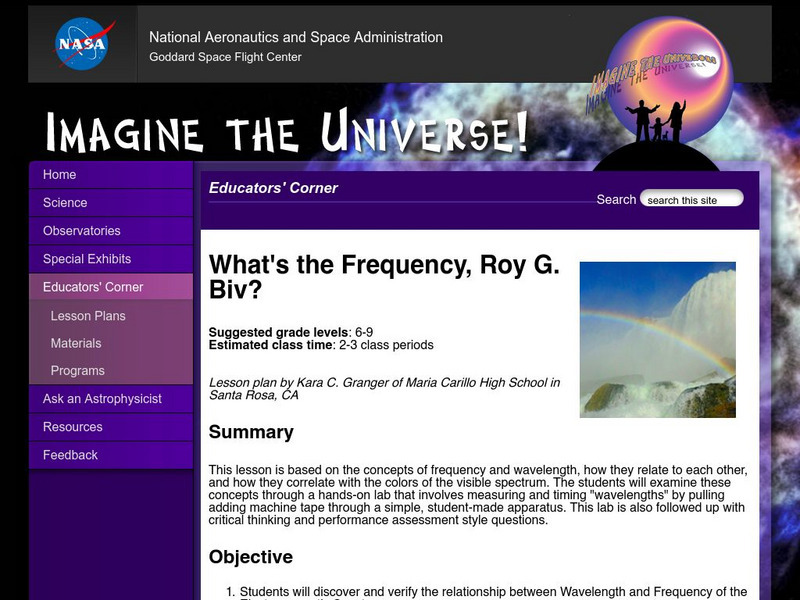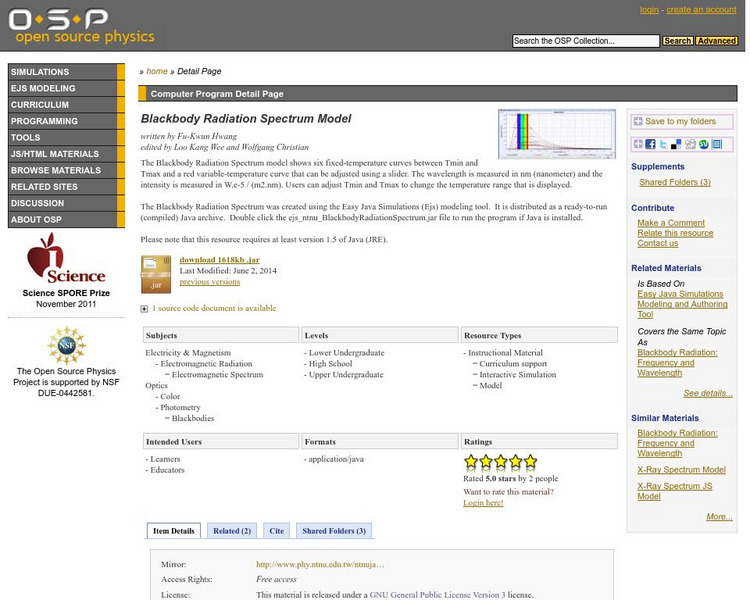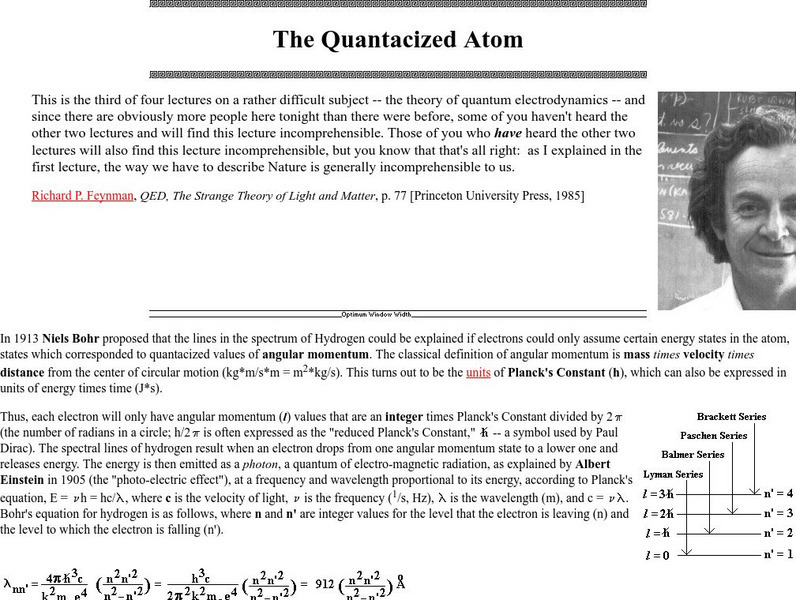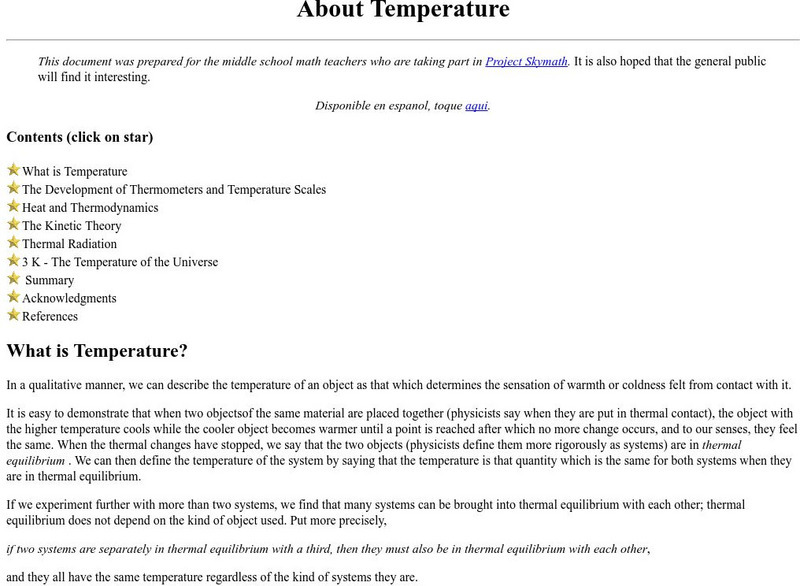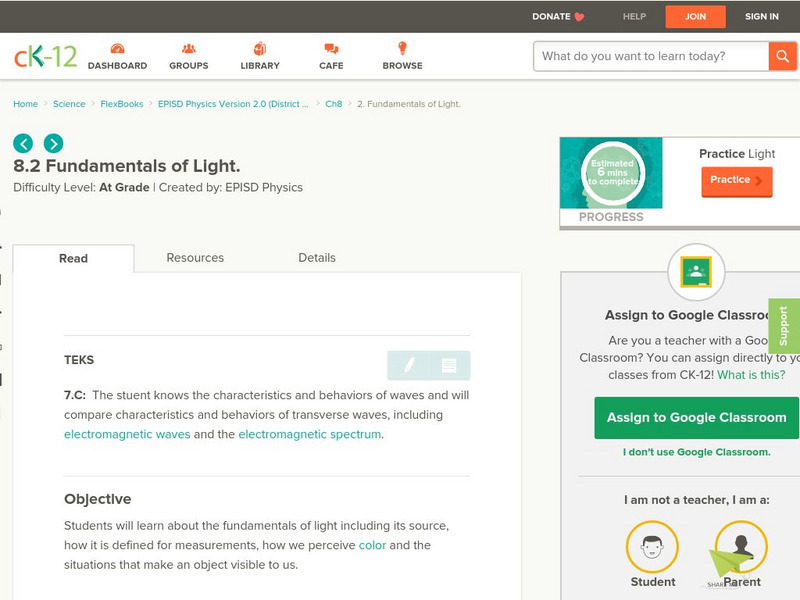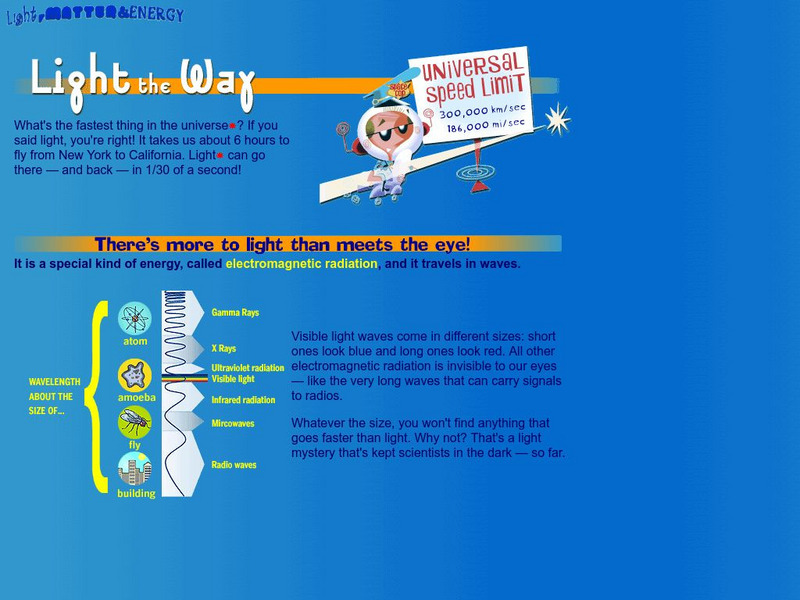NASA
Nasa: The Space Place: The Land of the Magic Windows
This is a site from NASA that contains an interesting and fun way to learn about the electromagnetic spectrum. Kate receives a strange riddle from her grandfather. Find out what it says and go through the gateway to the Land of the Magic...
Alabama Learning Exchange
Alex: Burn Baby Burn!
The students will review the concepts of electromagnetic spectrum, properties of light, and the transition from ground to excited state of electrons in atoms. In laboratory groups, the students will identify the characteristic light...
Alabama Learning Exchange
Alex: Ultraviolet Radiation
An interactive PowerPoint will be used to introduce the electromagnetic spectrum. Young scholars use UV beads to observe changes caused by the sun's rays and evaluate sunscreen effectiveness. Harmful effects of UV exposure will be...
Stanford University
Stanford University: Invisible Rays
This lesson focuses on investigating the electromagnetic spectrum using ultraviolet beads. Students learn how material properties change as the size of the material decreases to the nanoscale.
University of California
Center for Science Education: Gallery
A gallery of astronomy images which depict galaxies, comets, the moon, planets, nebulae, supernovae as seen in various regions of the electromagnetic spectrum. Each image in the gallery is described. Fascinating!
Wikimedia
Wikipedia: Spectral Line
Wikipedia offers information on spectral line, a dark or bright line in an otherwise uniform and continuous spectrum.
Other
Fluorescent Mineral Society: The Ultraviolet Spectrum
This resource presents a discussion of the nature and properties of ultraviolet light. The manner in which minerals emit UV light is described and explained.
Ducksters
Ducksters: Physics for Kids: Light Spectrum
Kids learn about the science of the light spectrum. Wavelengths and frequencies of the electromagnetic waves including visible light, primary colors, and subtractive colors.
University of California
Center Science Edu.: Electromagnetic Radiation on Trial
Here is a 1-5 day unit on electromagnetic radiation that features a teacher guide and student activities with extensions.
Texas Education Agency
Texas Gateway: What Are Telescopes Used For?
Scientists use telescopes to study the various components of the universe. How do telescopes work? Learn here about the electromagnetic spectrum and the various types of telescopes.
CK-12 Foundation
Ck 12 Exploration Series: Simulations: Physics: Light Wave
[Free Registration/Login Required] Are there colors we don't see? This simulation addresses that question by exploring light as an electromagnetic wave. Learn how the electromagnetic wave relates its wavelength and frequency to the...
NASA
Nasa: Imagine the Universe: What's the Frequency, Roy G. Biv
In this very detailed lesson plan from NASA, students investigate wavelength and frequency within the electromagnetic spectrum.
American Association of Physics Teachers
Com Padre Digital Library: Open Source Physics: Blackbody Radiation Spectrum
In this simulation change the temperature range displayed to measure blackbody radiation intensity.
Friesian School
Proceedings of the Friesian School/the Quantacized Atom
A very lengthy page from friesian.com discussing Bohr's theory of electronic energy levels and the explanation of commonly observed atomic emission line spectra. The concept of a photon and Einstein's observation of the photoelectric...
University Corporation for Atmospheric Research
Ucar: About Temperature
This site from the University Corporation of Atmospheric Research provides a lengthy page covering numerous topics including the difference between heat and temperature, the use of different temperature scales, thermal expansion, how a...
University of Colorado
University of Colorado: Physics 2000: Cat Scans: Projecting Shadows
This page and the three pages which follow discuss how X-ray technology can be used to produce an image of the human body. Discussion is understandable and highly intriguing. Several interactive animations allow the visitor to explore...
Georgia State University
Georgia State University: Hyper Physics: Scattering Concepts
A collection of several pages explaining the principles which underlie Rayleigh scattering of light.
Lawrence Berkeley National Laboratory
Berkeley Lab: Micro Worlds Project: Advanced Light Source
A discussion of the Advanced Light Source (ALS) facility and its use in material analysis and medicine.
CK-12 Foundation
Ck 12: Fundamentals of Light
[Free Registration/Login may be required to access all resource tools.] Students investigate the fundamentals of light including its source, how it is defined for measurements, how we perceive color, and the situations that make an...
TeachEngineering
Teach Engineering: Sound and Light
The Sound and Light unit provides students with an understanding of sound and light waves through the theme of the "Sunken Treasure," a continuous story line throughout the lessons. In Lessons 1-5, students learn about sound, and in...
American Museum of Natural History
American Museum of Natural History: O Logy: Light, Matter, Energy: Light the Way
What is electromagnetic radiation and how does it work? Review a captioned graphic that explains electromagnetic radiation and the visible and invisible types of radiation on the electromagnetic spectrum.
Cosmo Learning
Cosmo Learning: Modern Surveying Techniques
A collection of video lectures from a course introducing students to modern surveying techniques. Webpage includes twelve lectures from a professor at the National Programme on Technology Enhanced Learning. Lectures vary in length and...
ClassFlow
Class Flow: Climate Intro
[Free Registration/Login Required] This flipchart is a short, basic introduction to climate. It includes solar radiation and the electromagnetic spectrum.
Science Struck
Science Struck: Wavelength of Light
Describes the characteristics of light, presents two formulas for calculating its wavelength, and provides a table of the different wavelength ranges across the electromagnetic spectrum.




